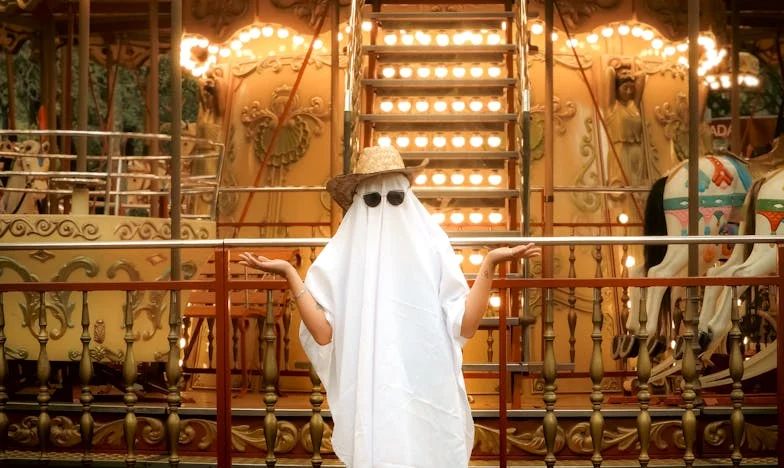The Quiet Price of Dignity: A Life Behind Closed Doors
“Sarah, have you ever thought about what it’ll be like when you’re old and alone?”
My younger sister’s words echoed through the cold air of my kitchen, slicing through the steam rising from our mugs of coffee. I stared at her—her hair in a messy bun, her toddler tugging at her sleeve, her voice a mixture of concern and exasperation. I wanted to snap back, to tell her I was fine, that I was happy, but the words caught in my throat. Instead, I offered a weak smile and busied myself with the dishes, the warm water scalding my trembling hands.
I’m Sarah Miller, fifty years old, never married, no children. I live in a small, spotless apartment on the third floor of a brick building in Dayton, Ohio. My life is a ledger, rows of numbers and neat columns—predictable, controlled, safe. I work as an accountant at the Larkin Furniture Plant, a job I’ve held for nearly thirty years. Every morning, I wake up at 6:15, eat oatmeal with honey, and listen to the same jazz station as I get dressed. People say I’m meticulous. They don’t know that it’s more than habit; it’s survival.
Growing up, I watched my parents tear each other apart in our cramped house on Elm Street. My father drank, my mother screamed, and my sister and I learned early to keep our heads down. I swore I’d never let chaos into my life. So I built walls and kept the world at a distance, telling myself that dignity meant order, and order meant peace.
But as the years rolled on, the silence in my apartment grew heavier. Friends drifted away, married, moved out of state. My sister, Emily, was the only regular visitor, and even she came less after her second child was born. The phone rarely rang. I told myself I liked it that way. I had my routines, my books, my carefully tended plants. I didn’t need anyone.
Or so I thought, until the day Emily’s words pulled the rug out from under me.
It was a Tuesday in late February, the kind of gray, bone-chilling day that makes Ohio winters feel endless. I’d just gotten home from work when Emily called. She sounded upset, her voice tight.
“Sarah, can I come over? I need someone to talk to.”
She arrived half an hour later, her daughter Lily in tow, cheeks red from the cold. Emily barely made it through the door before she broke down in tears. Her husband, Mark, had lost his job. Money was tight, and the kids were always sick. I poured her coffee, made her sit, tried to soothe her the best I could. But as I watched her cry, I realized I had nothing to offer but a cup of tea and awkward pats on the back. I didn’t know how to help her. I’d built my life to be immune from this kind of chaos, but now I saw the price I’d paid.
That night, after Emily left, I sat in the dark, listening to the hum of the refrigerator. I wondered if my version of dignity was just fear wearing a suit. My apartment was silent, every surface gleaming, but my heart was a mess.
A week later, I overheard two coworkers in the break room.
“Sarah’s got it easy,” one whispered. “No husband, no kids, just herself to worry about.”
They laughed, but their words stung. Was I really so enviable? Or just invisible?
I tried to ignore the ache, bury myself in spreadsheets and numbers. But everywhere I turned, I saw reminders of what I didn’t have. At the grocery store, an elderly man struggled with his cart, his daughter patiently helping him. On weekends, I heard children’s laughter drifting up from the park below my window. Even my plants seemed to droop in sympathy.
One Saturday, I called Emily on impulse. “Do you want to go to the farmer’s market?” I asked, my voice trembling with the unfamiliar vulnerability of reaching out.
She hesitated. “Sure. Lily would love that.”
We wandered the stalls, buying apples and fresh bread, talking about everything and nothing. Lily held my hand, sticky fingers clasped tight, and I felt something inside me soften. For the first time in years, I laughed—really laughed.
Afterwards, Emily hugged me. “You know, Sarah, you’re not as alone as you think.”
But the truth is, I am. I go home to an empty apartment, eat dinner in silence, and wonder what will happen when I’m old and sick. Who will take me to the doctor? Who will hold my hand when I’m scared? I built a life of dignity and order, but now I see the cracks.
A few days ago, I found a letter from my mother, written years before she died. “Don’t let fear keep you apart from the world, Sarah,” she wrote. “Dignity is important, but so is love.”
I cried for hours. For the mother I never really knew, for the life I might have had, for the choices I made in the name of safety.
Now, as I sit by my window, watching the world go by, I wonder: Did I choose dignity, or did I just choose loneliness? And is it ever too late to open the door and let the world in?
